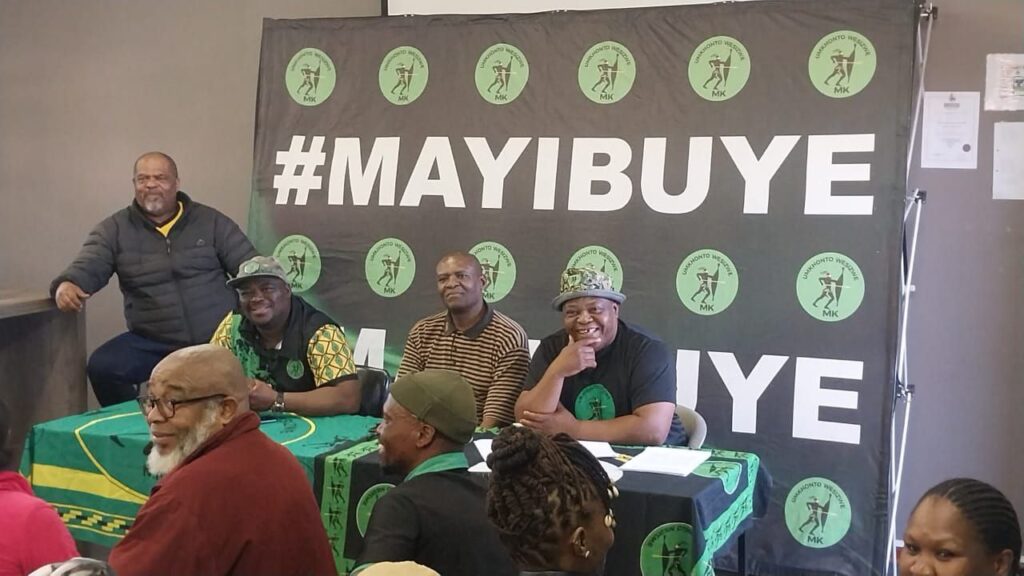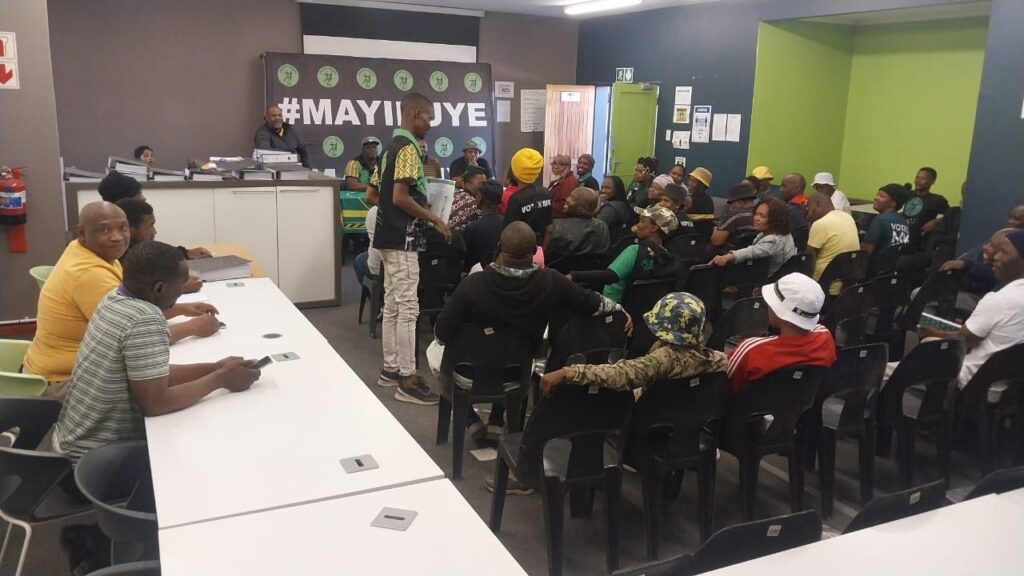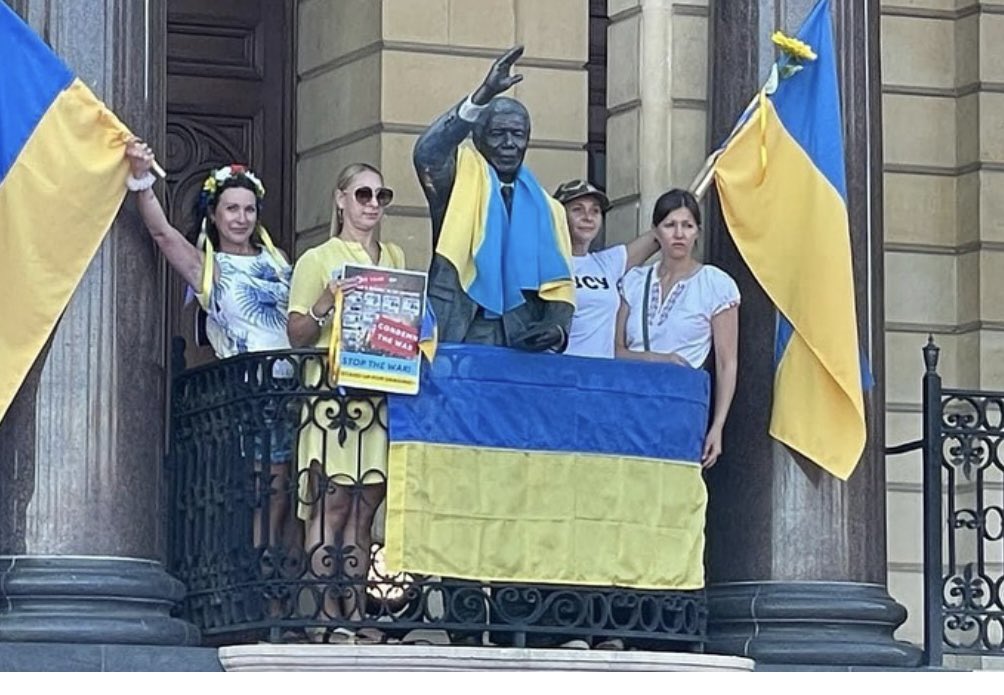Thabo Mokwaledi
In a surprising and contentious display of international solidarity, the Ukrainian Association of South Africa (UAZA), a South African non-profit organization, celebrated Ukrainian Flag Day with an elaborate tribute that included draping Nelson Mandela’s monument in yellow and blue cloth.
This act has ignited a heated debate within South Africa about the relevance and appropriateness of such gestures in the context of the country’s diplomatic stance and historical connections.
Raseriti “Papi” Tau, a prominent political scientist and Provincial leader of the uMkhonto weSizwe (MK) Party in the Northern Cape, led the charge in criticizing the UAZA’s actions.
Speaking at a meeting of the International Relations Subcommittee of the MK Party, Tau described the event as an “opportunistic attempt to rewrite history”, and expressed concern that the act of covering Mandela’s statue — a symbol of South Africa’s struggle against apartheid and a global icon of peace — disrespected both the legacy of Nelson Mandela and South Africa’s historical allies.
Tau emphasized that South Africa’s foreign policy is rooted in the principles of peaceful conflict resolution, as outlined in the United Nations Charter and said the country’s stance is one of neutrality, reflecting its commitment to international law and its democratic Constitution.

The country has traditionally advocated for dialogue and diplomatic solutions in international disputes, including the ongoing conflict between Russia and Ukraine. and
The controversy surrounding the Ukrainian Flag Day celebration is further compounded by Tau’s assertion that the event may have been conducted without the necessary authorization.
He questioned whether Mandela would have supported such displays, particularly given his legacy of resistance against imperialism and his known opposition to foreign interventions.
Tau also criticized the involvement of the Democratic Alliance (DA), suggesting a problematic alignment with Ukrainian interests.
He pointed to the DA’s support for Ukraine and its recent interactions with Ukrainian authorities as evidence of a broader, potentially disruptive agenda, and included allegations that Ukrainian refugees, some of whom are suspected of having ties with intelligence agencies, are influencing local politics and undermining South Africa’s sovereignty.
In response to the UAZA’s actions and the perceived alignment of local political groups with foreign interests, Tau and other community leaders have called for a reevaluation of how such international symbols and gestures are used within South Africa.
They argue that while freedom of expression is a cornerstone of democracy, it should not come at the expense of national heritage or historical dignity; and that there is a need to address these concerns and explore the implications of foreign influences on South African political and cultural landscapes.
Tau called for the drive to delve into the broader context of how South Africa engages with international issues while maintaining its stance of neutrality and respect for its historical icons.

As the debate continues, South Africans are left to grapple with the balance between global solidarity and the preservation of their national identity and historical legacy.
MK National Assembly MP, and member of the party’s International Relations and Co-operation sub-committee Wesley Marshall Douglas said strongly condemned the actions.
“What the UAZA have done is vandalism and defacing of a national hero’s monument. It is not only utterly disrespectful, but an affront to South Africa’s stance of neutrality on the Russia-Ukraine war. MK Party will continue to call for negotiated peace, and we will not allow our country to be arm twisted to support Ukraine’s agenda,” Douglas said.
As one of the participants noted, “Ukrainians have a saying ‘you can’t come into someone else’s parish with your own rules’ UAZA is violating this wonderful principle by intruding with its rules into the peaceful life of South Africa”.
INSIDE POLITICS

